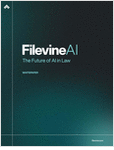Victims of convicted Ponzi schemer R. Allen Stanford finally got some good news Monday when their class claims against the law firms and various advisors accused of aiding in the multibillion dollar fraud were restored. And that’s bad news for the primary targets of the litigation, which include Proskauer Rose, Chadbourne & Parke, Adams & Reese, and others that counted Stanford and his international entities among their corporate clients before the fraud collapsed in 2009.
The U.S. Court of Appeals for the Fifth Circuit gave the green light to three proposed class actions, including the suit against Proskauer and Chadbourne and Thomas Sjoblom, a former partner at both firms. But the appellate court’s 33-page decision should also apply to several other class actions, including suits against Adams & Reese; BDO Seidman; and several banks. The plaintiffs claim damages for the total amount of Stanford’s fraud, or roughly $7 billion.
The four-judge Fifth Circuit panel reversed a decision by Dallas federal district court judge David Godbey, concluding that the judge erred in disqualifying the plaintiffs’ state law claims as barred under the Securities Litigation Uniform Standards Act of 1998. Stanford’s Cayman Island-issued fraudulent CDs were not, in fact, covered by SLUSA, the panel found.
Edward Snyder of Castillo & Snyder, co-lead plaintiffs counsel in the three-year-old class action against Proskauer, Chadbourne, and Sjoblom, told us he was thrilled with the decision. Judge Godbey’s 2010 ruling, Snyder noted, had thrown a major monkey wrench in the plaintiffs’ strategy of filing their class claims under state law. The strategy was an attempt to get around the U.S. Supreme Court’s rulings in Central Bank of Denver v. First Interstate Bank of Denver and Stoneridge v. Scientific-Atlanta, which have been the death knell to federal securities law claims against third party advisors to accused fraudsters.
“I don’t expect this to be over by any means,” acknowledged Snyder, noting that the defense could appeal for a rehearing. Calls to Proskauer’s defense counsel, James Rouhandeh at Davis Polk & Wardwell, and Chadbourne’s counsel, Daniel Beller at Paul, Weiss, Rifkind, Wharton & Garrison, were not returned at press time. (Strasburger & Price and Neligan Foley are co-lead counsel for the plaintiffs in the Proskauer case.)
Snyder, a member of the Stanford investors committee who personally represents hundreds of harmed investors, has helped spearhead at least seven separate but parallel suits against the two firms and Sjoblom. All of the complaints allege that Sjoblom, formerly a partner at Chadbourne and then at Proskauer, turned a blind eye to Stanford’s alleged fraud and successfully stalled a Securities & Exchange Commission inquiry into the purported Ponzi scheme for years.
The parallel claims include a $1.8 billion complaint on behalf of Stanford receiver Ralph Janvey filed Feb. 1 in Dallas federal district court, as well as six individual Texas state court suits filed last December. Snyder and his co-counsel filed each of the six complaints as direct actions on behalf of 49 plaintiffs to avoid arguments that class claims might be time-barred. In an e-mail, Edward Valdespino of Strasburger & Price told us that “opposing counsel in the Proskauer case would not even discuss” tolling the statute of limitations.
A Proskauer spokesman said in February that the claims asserted by Janvey against the firm “are completely without merit” and that the firm would “address them in the appropriate forum.”
Snyder said that, if the complaints are ultimately allowed to go forward, “we could go to trial really quickly.” That’s because many of the documents that are normally generated during discovery have long been in the possession of the receiver, who turned the relevant ones over to Snyder and the other plaintiffs lawyers about a year ago.





